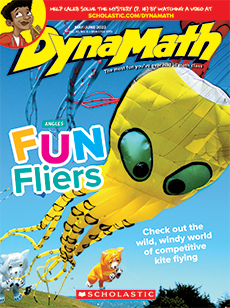For the past three-and-a-half years, a giant panda cub named Bao Bao (bow-bow) has wowed visitors to the National Zoo in Washington, D.C., as well as fans worldwide who watched the bear on the zoo’s online panda cams. But on February 21 the panda’s followers had to say goodbye. Bao Bao boarded a cargo plane bound for China—pandas’ native home.
Bao Bao was born at the National Zoo on August 23, 2013. Her parents, Mei Xiang (may-shong) and Tian Tian (t-yen t-yen), are on loan to the zoo as part of a breeding agreement between the U.S. and China. The zoo gives $500,000 a year to support panda conservation efforts in China. In exchange, it gets to exhibit Mei Xiang and Tian Tian to more than 2 million visitors and nearly 3 million web viewers each year. As part of the agreement, all panda cubs born in the U.S. must be sent to China for breeding by the time they turn 4 years old.
For the past three-and-a-half years, a giant panda cub named Bao Bao (bow-bow) has wowed visitors to the National Zoo in Washington, D.C.. Many have also watched her worldwide on the zoo's online panda cams. But on February 21 the panda's followers had to say goodbye. Bao Bao boarded a cargo plane bound for China. That is pandas' native home.
Bao Bao was born at the National Zoo on August 23, 2013. Her parents are Mei Xiang (may-shong) and Tian Tian (t-yen t-yen). They are on loan to the zoo. It's part of a breeding agreement between the U.S. and China. The zoo gives $500,000 a year to support panda conservation efforts in China. In exchange, it gets to exhibit Mei Xiang and Tian Tian. More than 2 million visitors and nearly 3 million web viewers see the pandas each year. As part of the agreement, all panda cubs born in the U.S. must be sent to China for breeding by the time they turn 4 years old.
